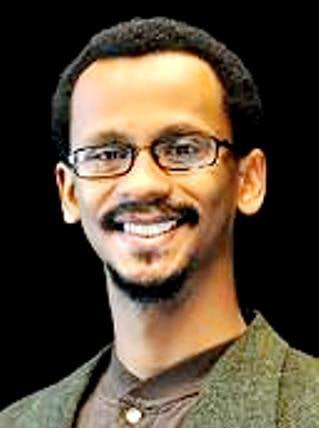 Dr. Zachery Williams says educators “have to get out of the ivory tower and we have to be open and creative to how we approach things.”
Dr. Zachery Williams says educators “have to get out of the ivory tower and we have to be open and creative to how we approach things.”Dr. Zachery Williams is on a mission to make African-American Studies more accessible to the masses.
Williams, an associate professor of history at the University of Akron and a rising star in the academy, is in the final stages of launching what some are affectionately calling “college in the hood.”
The CommUniversity, an independent effort conceived by Williams, will begin in February, offering free classes centered on an African-American Studies curriculum. It will have a specific focus of tackling some of the most pressing problems, like the achievement gap and mass incarceration, facing African-American neighborhoods throughout the Cleveland and Akron areas.
“These issues in the African-American community have never been more pressing than at this point,” says Williams, who has taught at the University of Akron for the past eight years. “We have to get out of the ivory tower and we have to be open and creative to how we approach things.”
Though Williams has recruited faculty members from local colleges and universities to volunteer to teach in the program, the program is not sponsored by any one academic institution. It does have the backing of numerous community-based organizations and churches who have volunteered their facilities to host the classes.
In the wake of drastic cutbacks in the Cleveland and Akron areas, community leaders say that a program like the one Williams has envisioned is critical to getting locals to even consider the possibility of someday enrolling in a two- or four-year college.
“This is really about access,” says Rev. Mittie Imani Jordan, the chairman and founder of the National Institute for Restorative Justice, an advocacy organization that focuses on exposing social, economic and legal inequities in the country. “We are bringing the academic setting into the neighborhood.”
Community leaders — some with little to no formal education — will also be tapped to facilitate group discussions and teach classes in this program, dismissing the idea that only academics have the solutions to the problems that beset urban America.
“We want the community to have the opportunity to weigh in,” says Williams, the author of In Search of the Talented Tenth: Howard University Public Intellectuals and the Dilemmas of Race in Academia, 1926-1970 and the editor of Africana Cultures and Policy Studies: Scholarship and the Transformation of Public Policy.
The African American Studies interdisciplinary curriculum, he says, will serve as a bridge to bring academics, concerned citizens and policymakers together to understand and then address some of the community’s most vexing challenges.
Community-based schools are hardly new. But what’s unique about Williams’ model is that he and others have forged forward without financial backing from any university or corporate sponsors. And his model is unapologetically centered on research in African-Americans Studies to “spearhead its pedagogical, policy and praxis dimensions,” says Williams. “The CommUniversity privileges the experiences of community members in their own understanding of the forces shaping the challenges facing the urban communities in which they live in.”
Williams has set a goal of raising $3,500 by the end of this month to help defray the cost of purchasing supplies and reading materials for the participants who are in the process of enrolling in the program.
“We make much out of little,” says Williams. “We want to get people out of their silos. We believe that if people come together and invest time, this can pay dividends for everybody.”
Dr. Nick Young, a sociologist and former college professor, says that Williams’ ambition and drive is encouraging.
“We’ve been talking about doing this ‘college in the hood’ program for awhile,” says Young, a community activist who has collaborated with Williams on other educational initiatives in the Cleveland and Akron area. “I think it will eliminate some of the mistrust and suspicion that the community has of the college and help to bring everyone on the same level.”
Williams hopes that his program will serve as a model for other professors looking to start a similar program in their area.
“We’re trying to create communal learning environments,” says Williams. “And it’s clear that applied Black studies is essential and necessary right now.”
For more information about Williams’ efforts, visit http://scholargifts.com/campaigns/the-university-of-akron-pan-african-studies-communiversity/?updated=true
Jamal Watson can be reached at [email protected]





















